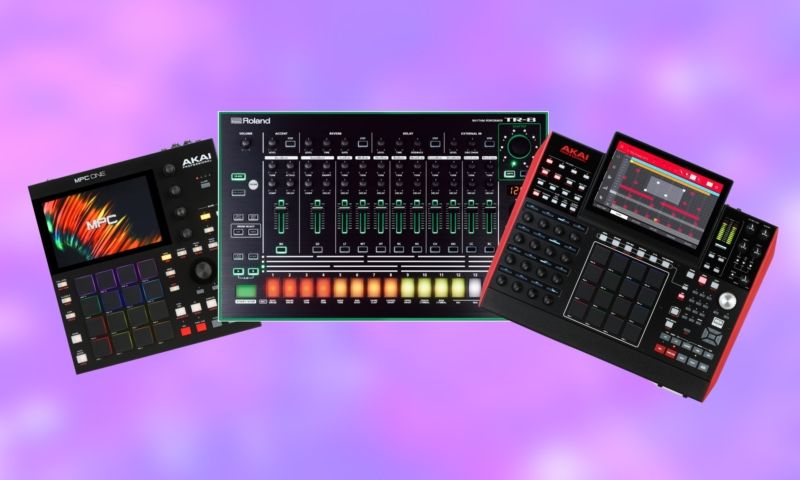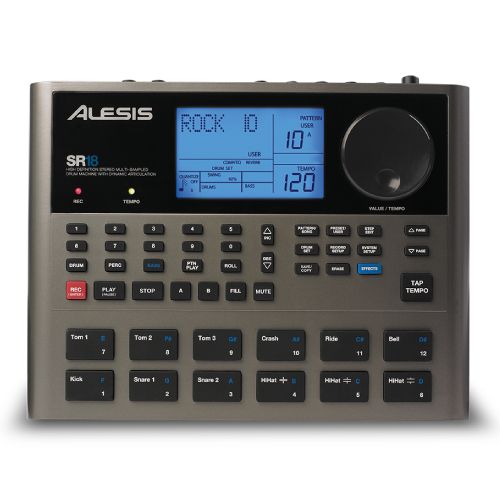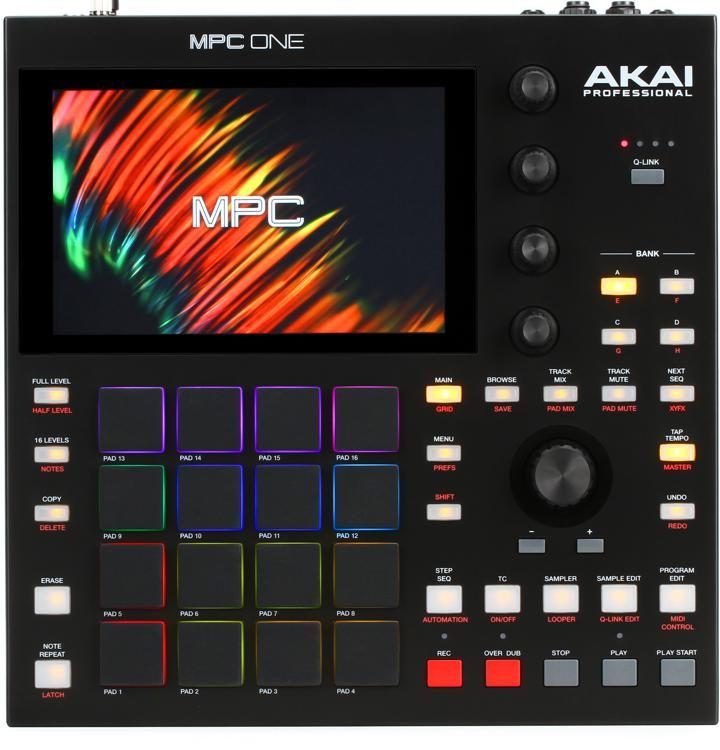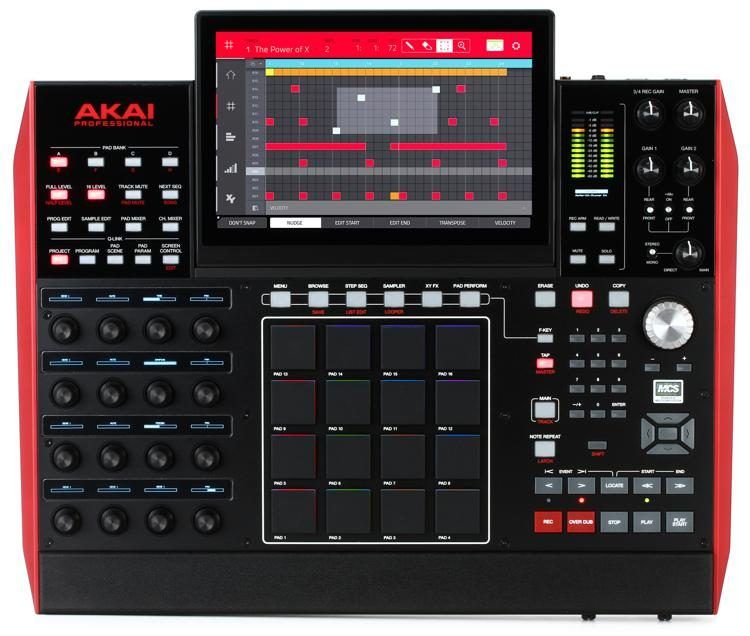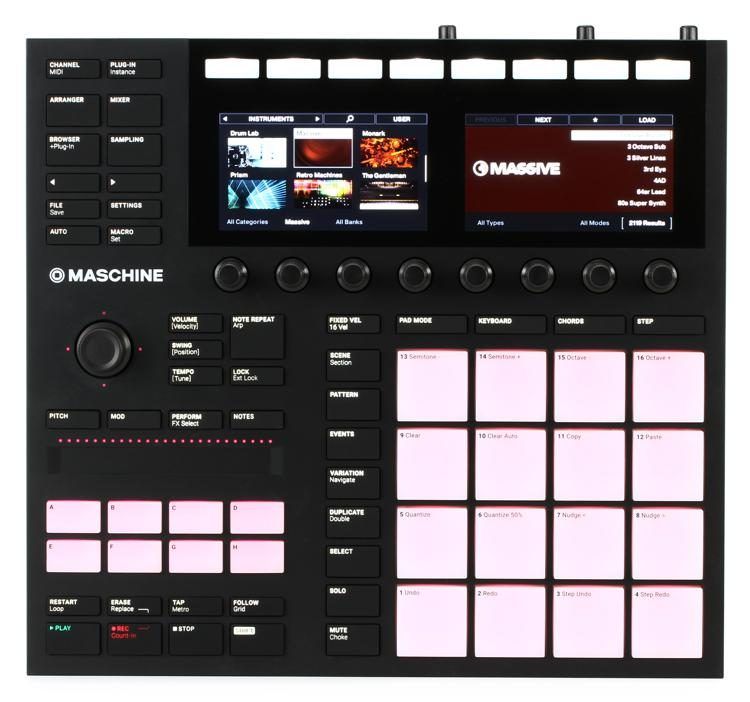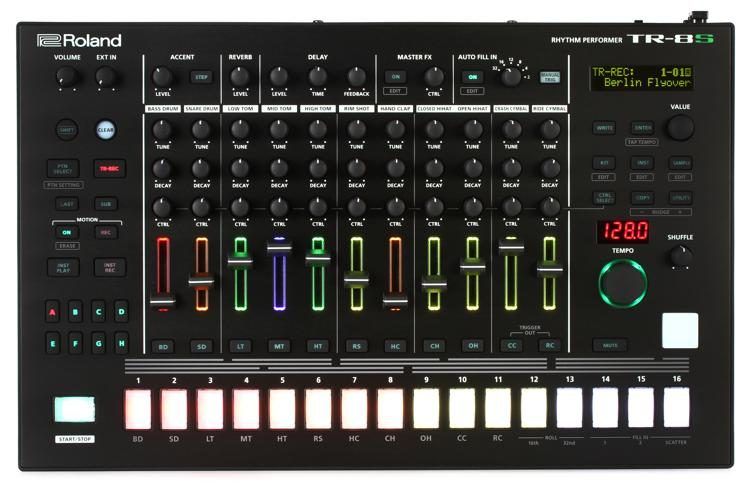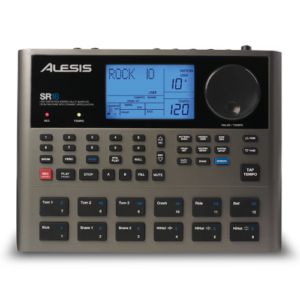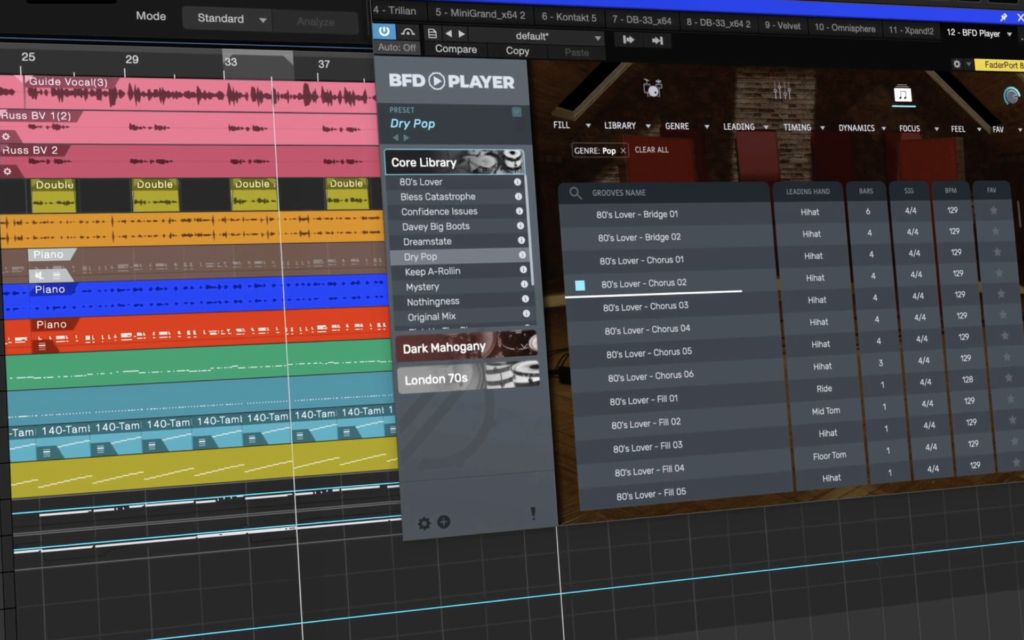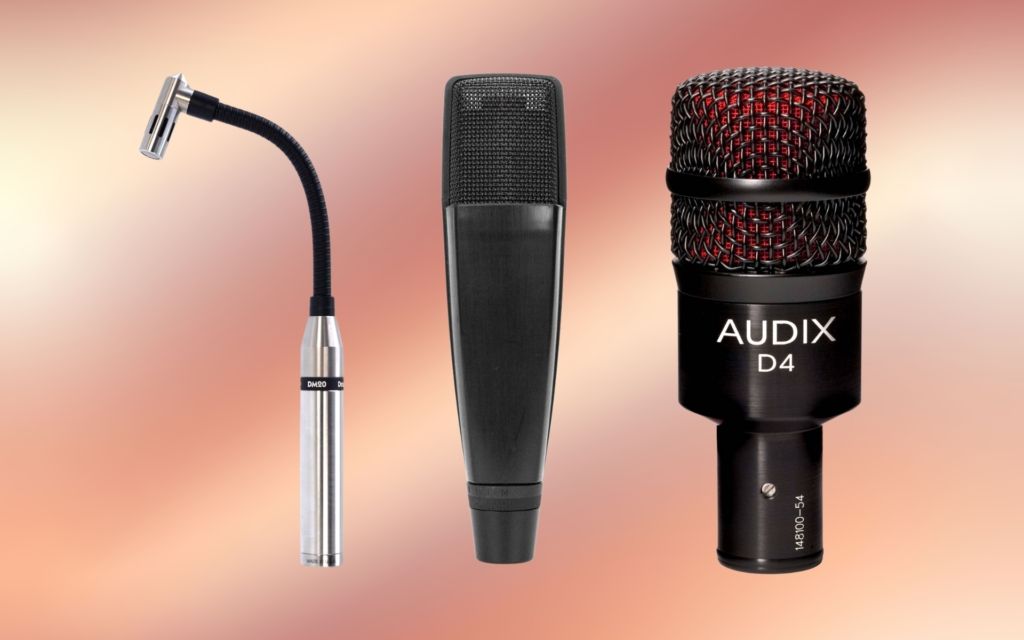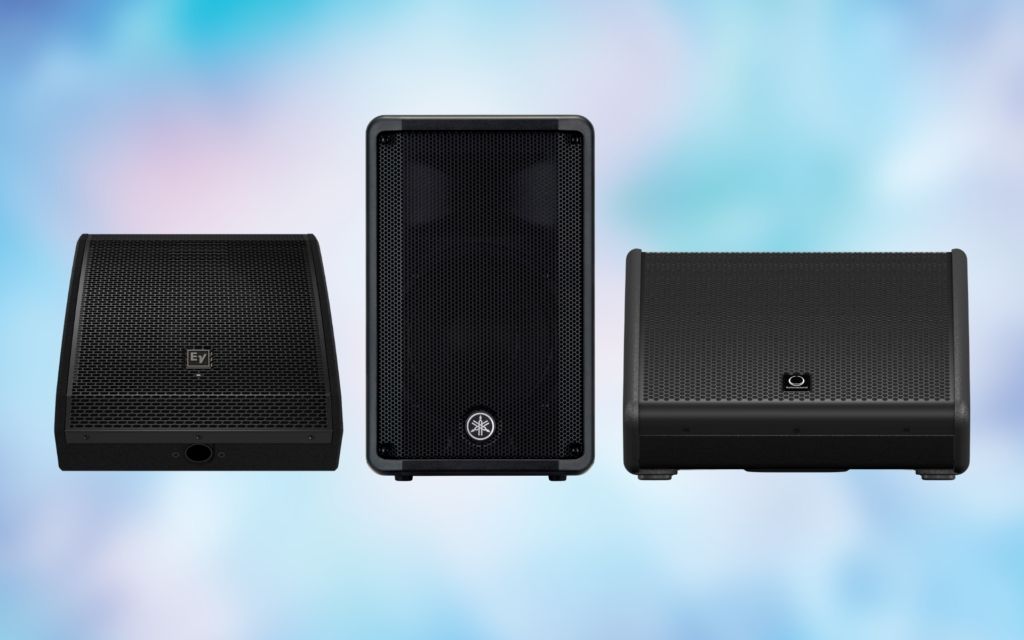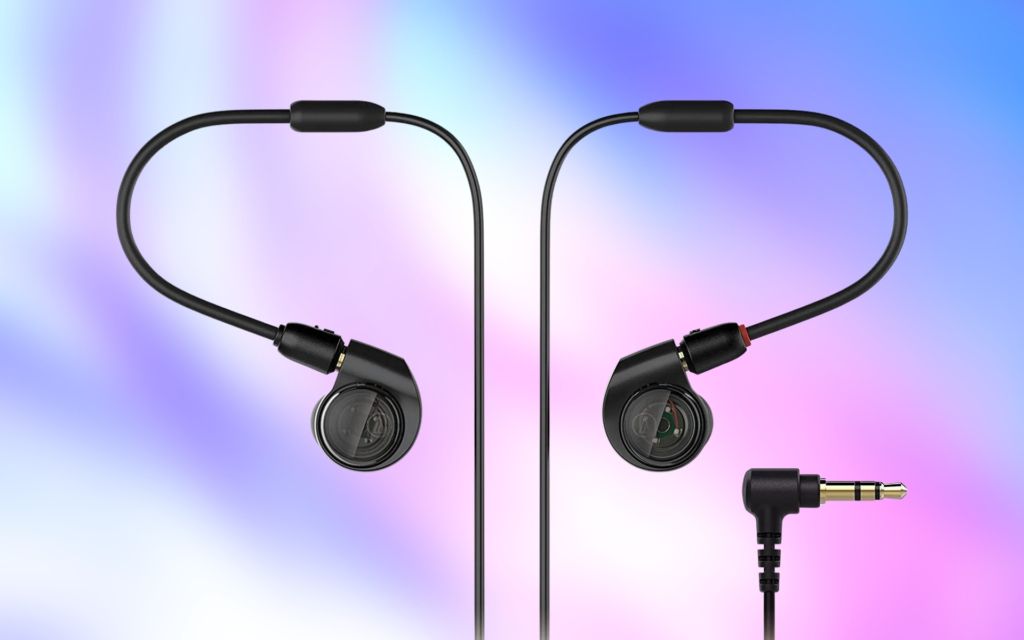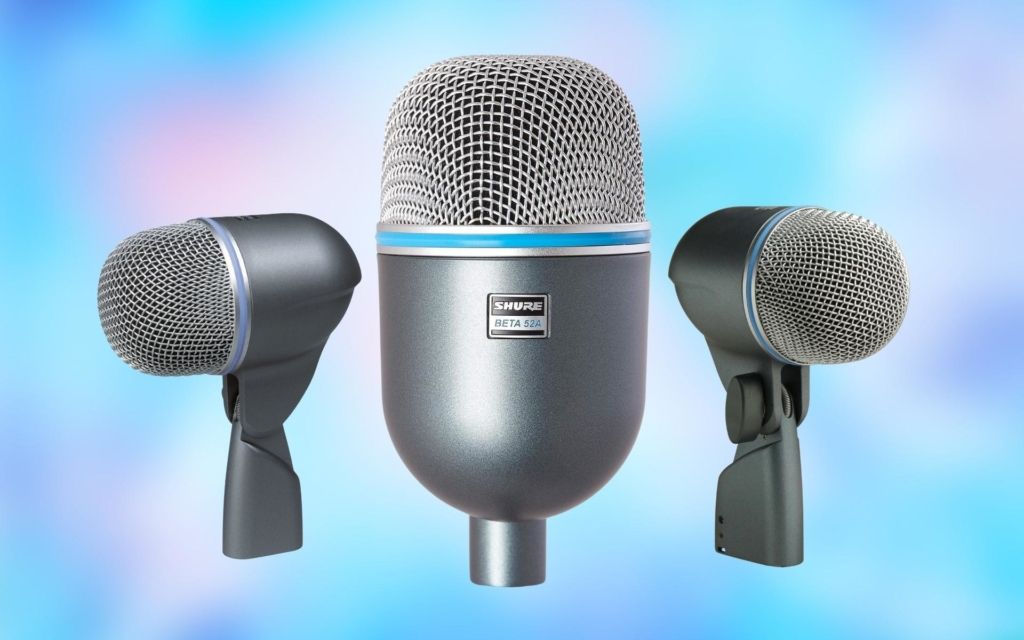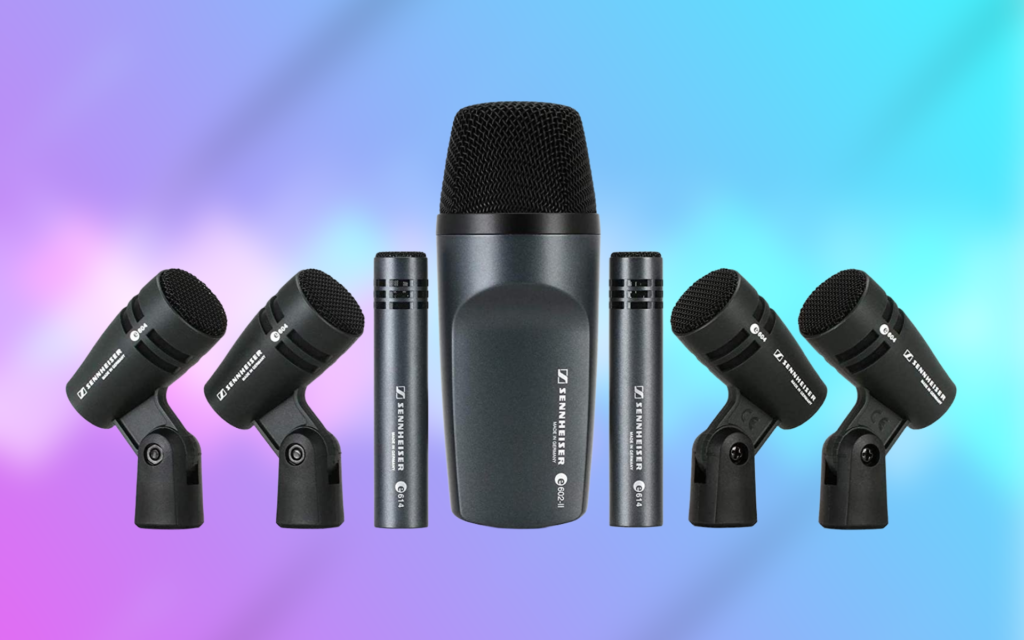I review products independently and only recommend products I would use myself. If you purchase through a link, I may earn an affiliate commission. Learn more.
Beat machines and drum samplers have been used for hip-hop production since the early days of the genre’s existence. Today, manufacturers combine the classic designs of retro machines with modern technology.
There are many different types of hip-hop drum machines available for producers, some of which offer simplicity and others that can contribute to every aspect of your production process.
In this guide, we’ve found the very best beat machines for hip-hop and rap producers. We’ve included options to suit all budgets, and you’ll find detailed information on what makes these devices stand out from the crowd.
Contents
- What are the Best Beat Machines for Hip Hop?
- How I Tested and Selected the Best Beat Machines for Hip HopI’ve regularly used beat machines for various music projects in the past. Through that experience, I’ve been able to learn what is needed for hip hop artists to have a reliable machine that will help them create music. When I test a beat machine out, I first look at how easy it is to use. I’ll boot it up and try to make a beat as quickly as possible. This gives me a decent idea of the interface and layout. I’ll then listen to a bunch of samples to hear how the sample audio quality is. I make sure to listen with headphones so that I get the best representation possible. After that, I’ll run through all the audio effects buttons and knobs. I’ll edit a few beats in a variety of ways to see how useful these audio effects can be for certain purposes.
- In-Depth Beat Machine Reviews
- Best Hip Hop Drum Machine Buyer's Guide
- Things to Consider When Buying Hip Hop Beat Machines:
- Key Features of Rap Beat Machines
- Best Drum Machine for Hip Hop FAQs
What are the Best Beat Machines for Hip Hop?
I’ve regularly used beat machines for various music projects in the past. Through that experience, I’ve been able to learn what is needed for hip hop artists to have a reliable machine that will help them create music.
When I test a beat machine, I first look at how easy it is to use. I’ll boot it up and try to make a beat as quickly as possible. This gives me a decent idea of the interface and layout.
I’ll then listen to a bunch of samples to hear how the sample audio quality is. I make sure to listen with headphones so that I get the best representation possible.
After that, I’ll run through all the audio effects buttons and knobs. I’ll edit a few beats in various ways to see how useful these audio effects can be for certain purposes.
In-Depth Beat Machine Reviews
Akai Professional MPC One Standalone Sampler and Sequencer
Akai Professional MPC One Standalone Sampler and Sequencer Review
The MPC devices by Akai are synonymous with hip-hop production, and this version of the popular beat machine combines all of the expertise gained by the brand over years of manufacturing with modern advancements.
The Akai Professional MPC One is a complete standalone DAW that allows you to create, perform and synchronize without being tethered to a computer or laptop. It offers an excellent blend of classic loop production alongside modern track production capabilities.
The 10.1-inch multi-touch screen gives access to all the hands-on controls you need for hip-hop production.
I love that the 16 velocity and pressure-sensitive pads are highly responsive, allowing for more creativity when creating beats and melodies.
Included in the package is 16GB of internal storage and external hard drive support, so you can be sure your projects will not get lost or corrupted if something were to go wrong with your device.
Finally, the MPC One has several drum pad effects, such as Ringmod, Bitcrush, and Decimator, as well as high-quality analog I/O that connects to everything. It also has extensive MIDI, CV/Gate, and USB I/O, so you can control your entire rig with it.
Pros
- Capable of producing hip-hop beats with no other device or software
- Can easily be integrated with your chosen DAW
- Onboard samples are of the highest standard
Cons
- With so many effects and controls, may be confusing to use
Native Instruments Maschine MK3 Production and Performance System
Native Instruments Maschine MK3 Production and Performance System Review
The 3rd version of Native Instruments’ popular Maschine is a powerful, innovative software/hardware hybrid groove production and performance system designed to help producers and performers easily create and perform beats.
Ideally suited to hip-hop, the Maschine MK3 packs a range of features that make it an incredibly versatile and intuitive tool for hip-hop producers.
The device is powered by USB or a power supply and features two high-resolution full-color displays, larger pads, and touch-sensitive knobs for easy two-handed drumming and parameter tweaking, as well as an innovative 4-directional push encoder for fast navigation.
It also includes all basic groove production features, such as step sequencing, real-time recording, note repeat, slicing, auto-mapping, VST, and AU plug-ins.
This is one of my favorite beat machines. It just feels so natural to use, with all the functions and tools being easily learnable.
If you’re looking for a hip-hop beat machine that makes it easy to create, arrange, and perform your music, the Maschine MK3 is an excellent option to consider.
Pros
- Makes inputting beats and rhythms a breeze
- Vast selection of drum samples for hip-hop and other genres
- Great for automating effects and other aspects of the sound
Cons
- Display screen is slightly small
Roland TR-8S Rhythm Performer
Roland TR-8S Rhythm Performer Review
The Roland TR-8S combines the classic TR drum machine sounds with the latest technology to provide music producers and live performers with a powerful and innovative tool.
I’ve owned one of these for a while, and it’s always been such a reliable tool to get those famous 808 beats, which are a staple in hip-hop.
It includes 81 ACB tones, 150 factory samples, and an SD card slot so you can layer your own creations with classic TR sounds.
This device boasts 16 backlit per-step pads, perfect for creating hip-hop drum patterns up to 32 steps long. This is ideal if you want to add variation to your drum loops rather than repeating the same eight or 16-bar patterns, which can become a little boring after a while.
For live hip-hop performances, the TR-8S offers unique features like a built-in audio interface and eight analog audio outputs, giving you plenty of options when it comes to routing your sounds.
On top of that, you can also control the intensity of the Accent function in real time for dynamic grooves and record your drums directly into your DAW using MIDI clock synchronization.
Overall, the Roland TR-8S is an impressive device – perfect for producing and performing hip-hop beats with all sorts of creative possibilities. It’s easy to use and includes enough features to keep even experienced producers busy for a long time.
Pros
- Great for varying drum loops to make them sound more interesting
- SD slot allows you to load in WAV or AIFF samples
- Has an old-school drum sampler feel
Cons
- Pads are laid out horizontally, unlike most modern drum machines
Alesis SR-18 Drum Machine
Alesis SR-18 Drum Machine Review
Affordable, easy to use, and stacked with excellent drum samples, the Alesis SR-18 is a great choice for any hip-hop beatmaker looking to make music on the go.
I have plenty of friends in the metal world who swear by this thing, but I found that it naturally works even better for creating hip-hop beats.
Its large 32MB sound set has an incredible variety of percussion sounds and effects available, from totally electronic to completely acoustic drums and hits. It also features built-in reverb, EQ, and compression capabilities to customize each sound to your liking.
Plus, with the ability to be powered by a battery or AC adapter, this drum machine gives maximum portability for anyone who wants to take their music making on the road!
The SR-18’s design makes it perfect for hip-hop producers who need powerful yet simple beat-making tools. The pattern play mode triggers patterns from the pads directly, making it easy to layer beats and create complex rhythms.
The drum roll function, 24 voice polyphony, and footswitch control for start/stop and count/A-B fill are great features that can significantly improve your hip hop beats.
Pros
- Very easy to operate
- Ideal for hip-hop producers who want a simple tool for making beats
- Can be powered by batteries
Cons
- Lacks the quality of samples that high-end options offer
Akai Professional MPC X Standalone Sampler and Sequencer
Akai Professional MPC X Standalone Sampler and Sequencer Review
This special edition of Akai’s revered MPC beat machine boasts all of the qualities required for hip-hop and rap production.
With its 10.1-inch multi-touch screen and 16 velocity pads, the Akai Professional MPC X provides plenty of hands-on control to get creative with beats, melodies, samples, and FX.
Interestingly, the onboard USB interface allows you to record vocals and instruments directly into the MPC X without the need for a DAW. It’s, therefore, ideal if you spend a lot of time on the road but would still like to create complete hip-hop tracks without being tied to one location.
Furthermore, with a 10GB Vault sample library that is full of originally sourced content, it’s not hard to see why this machine has become so popular with hip-hop producers.
I had such a great time sifting through the countless sample files on this machine. Without loading in your own, you have enough here to create some really diverse music.
Overall, Akai Professional MPC X is an excellent choice for those who are looking for a powerful beat machine for hip-hop production. It offers plenty of control over samples and projects and an impressive selection of plug-ins and sounds to work with.
Pros
- Onboard samples sound immensely good
- Offers classic effects and less common ones like bitcrush and ring modulation
- Can record vocals and instruments directly into the device
Cons
- Wide range of capabilities makes it more complicated to use
Best Hip Hop Drum Machine Buyer's Guide
Due to the many different designs of modern drum machines, it can be difficult for hip-hop producers to identify one that will suit their requirements.
For some, simplicity may be a more desirable quality. Complicated designs may distract you from the process of actually creating hip-hop beats, which after all is the main aim of buying one of these devices.
On the other hand, some people may prefer a beat machine that offers advanced options that they can use in their production process. If you’re experienced with these devices, seeing many controls and parameters may excite you rather than scare you!
It’s important to carefully think about how you intend to use the beat machine to choose one that meets your needs.
In the remaining sections of this guide, we’ll provide you with all of the information and considerations you need to make in order to make the best decision possible.
Things to Consider When Buying Hip Hop Beat Machines:
- Consider the drum sounds: Some beat machines are designed to replicate traditional drum sets, while others produce more synthetic-sounding percussion, and finally, there are some which provide a good balance. Make sure you consider the type of hip-hop beats you intend to make and choose accordingly.
- Think about complexity: You can usually tell just from looking at a beat machine whether it is going to be complex to operate or more basic and straightforward. Decide whether it’s worth opting for a simpler model with fewer features but still enough power to get your beats sounding great.
- Consider the sequencer type: Some beat machines have basic linear sequencers, while others have more advanced step-editing capabilities. The latter allows you to create complex rhythmic patterns and even record your own sounds directly into the machine.
Key Features of Rap Beat Machines
The Basics
A hip-hop beat machine is a type of electronic device that produces drum and percussion sounds and lets you create rhythms, grooves, and beats.
Beat machines can generate their own sounds through synthesis or by playing prerecorded samples. They also often come with built-in sequencers for programming complex patterns, which makes them perfect for producing old-school and modern hip-hop.
Hip Hop beat machines are often used with other hardware and software, such as synthesizers, samplers, DAWs, and effects processors. This kind of setup can help create more complex sounds and add depth and texture to your beats.
Main Features of Beat Machines for Hip Hop
Drum machines are some of the most versatile and expressive instruments for creating hip-hop beats. These devices can range from practical drum boxes to professional-grade production stations, but all have similar features that are crucial for making hip-hop music.
The velocity-sensitive pads on a drum machine give you much greater control over your sounds, with each hit having its own unique feel. This allows you to perform with expression and create natural-sounding drums that fit the style of your beats.
Additionally, most drum machines come with a built-in step sequencer which allows you to sequence your sounds easily and intuitively. Many drum machines also feature additional control options such as tempo adjustment, swing, rolls, accent, and flam, which can drastically change the sound of your beats.
Having this kind of control over your sounds helps to create unique rhythms and make sure each beat is tailored to its purpose.
Onboard Effects & Processing
When it comes to Hip Hop production using beat machines, onboard effects can add an extra layer of creativity and expressiveness.
Reverb can be used to give the drums a more natural sound, while delay can create interesting rhythms and patterns. Compression helps tighten up and smoothen out the dynamic range, giving more control of volume levels in your mix.
These effects can also affect the feel of your music – adding a subtle chorus effect to certain sounds may make them feel more dreamy or emotive; adding a heavy reverb to other sounds may make them feel more gritty and aggressive.
Experimentation is key – try different combinations of effects to get the sound you want for your track and what best matches the style and tone of the song.
In addition to effects, some beat machines also have EQ functions, so you can easily fine-tune individual drum sounds or entire sets of drums. This can be especially useful when mixing your beats; by adjusting levels such as treble or bass frequencies, you can maintain a balanced mix that has all its elements clearly heard.
Connectivity
As a hip-hop producer, the connectivity of your beat machine should be an essential consideration when choosing one.
Opting for a model with multiple outputs will give you better control over each sound and its effects, expanding the options you have when recording, producing, and performing with the device.
You will also need to consider whether the beat machine can be connected to another external device, such as preamps, synthesizers, or other samplers.
The more connections, the better; this allows for greater creative flexibility when making music. Many models now offer USB connectivity, allowing you to easily transfer audio files from the machine into your computer or hook it up to a DAW.
Best Drum Machine for Hip Hop FAQs
Can You Use Drum Machines with a DAW?
Most modern drum machines can be integrated into your DAW, but some make this process easier than others. The more basic models will allow you to take a line out of the device to record the drum loops into your DAW, but this means they cannot be easily edited.
More advanced drum machines are fully compatible with the likes of Logic and Ableton. They allow you to control samples and MIDI instruments in the software while switching between the device and the DAW to mix and process the beats.
How Many Steps Does a Hip Hop Beat Sequencer Need?
16-step hip hop samplers will provide you with enough time to create beats, but ideally, you’ll want to have more if you intend to add variation to the loops. Ultimately, it comes down to your production style and what you feel is necessary for your beats.

